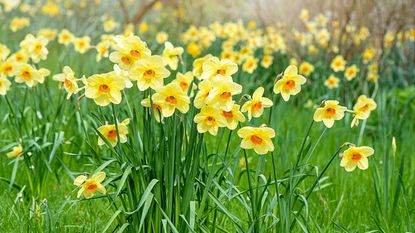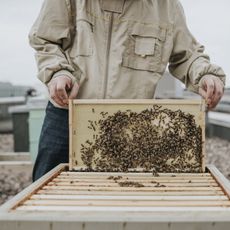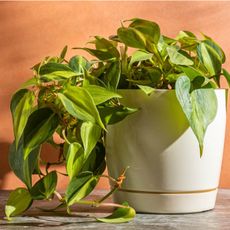Flower Bulbs In The Garden: Look Forward To Something Beautiful


Got bulbs? If you're a new gardener or even an old pro, you need to know this: Plant naturalizing flower bulbs now! Bulbs are the go-to garden plants this fall. Read on to find out why. Plant spring flowering bulbs for naturalizing now.
Naturalizers
Gardeners everywhere are beginning to see the value of allowing a growing space to generate its own natural beauty. As the cold gray days of winter begin to fade, naturalized bulbs spring up with colorful beauty, with no fuss or effort on your part. Simply toss some bulbs into an area at random and plant them where they land. They'll increase their numbers each year as you enjoy masses of spectacular blooms throughout the landscape. Now's the time to get your bulbs in for those beautiful spring flowers.
Beautiful Way to Save Time and Money
Let's face it, we're busy! We have jobs, kids, homes to maintain, households to run, health activities, hobbies and, well, life to attend to. But we all have an innate need to surround ourselves with nature, and the more the better. It seems we can all visualize a spring garden full of blooms and fragrance, but with our challenging schedules, the work involved to make it happen sometimes seems daunting. But other than initial planting, flower bulbs require little else. Just plant and forget - one and done!
So, here's the magic! Bulbs that naturalize do their own garden work every year. They come up in all their glory and bloom without you having to lift a finger. When a plant "naturalizes," it becomes comfortable in the environment into which it's introduced. And, as they increase in number, your floral display grows larger every year.
Since bulbs will continue to come up on their own every year with little to no fuss, it makes sense that they're a great investment. Once they're in, they get comfortable in their new environment and continue to flourish as if they've always been there. Any area that doesn't require spading will benefit from a few bulbs planted among other plants or as their own showpiece.
Gardening tips, videos, info and more delivered right to your inbox!
Sign up for the Gardening Know How newsletter today and receive a free download of our most popular eBook "How to Grow Delicious Tomatoes."
The Beauty of Bulbs
Bulbs are underground flower incubators. Deep in the bulb, a tiny baby flower is resting until it's time to burst into life. Surrounded inside with enough perfect food to nourish it through long dormancy periods, and a covering that protects it until it opens, the bulb nurtures it until it's the perfect time to sprout, and then sends forth a magnificent specimen. When the flower has finished its bloom cycle, the dying leaves feed the bulb until they wilt away for the winter. Whether corms, tubers or true bulbs, the flower bulb is a wonder of nature that not only cares for itself underground but reproduces without any effort on our part.
The choices of colors, textures and forms are endless. Whether planning a stand-alone bulb garden or filling in your landscape portrait, bulbs make vibrant additions. Gardeners also love to plant them amid groundcovers, even under trees and shrubs. Daffodils, squills, and snowdrops in soft pastels add striking beauty in the spring and attract pollinators with their generous nectar.
Bulbs are surging in popularity, but they aren't a new idea for gardens. Our ancestors traded and shared bulbs for generations - they were even once more valuable than gold. Visit Flowerbulbs.com for inspiration and education on everything bulb related, and get those bulbs planted for naturalizing now.


Caroline Bloomfield is Manager of Marketing Communications at Gardening Know How since 2019. A northwest native, she has resided and gardened in multiple zones in the U.S. and is currently at home in Eugene, Oregon. Writing and editing for various publications since 1998, her BA in American Studies from Southern Maine University includes an emphasis in English. She was raised in California by avid gardeners and continues to enjoy the natural world with an appreciation for the concepts of sustainability and organic care for the planet.
-
 Urban Beekeeping Guide: Top Tips For Raising Bees In The City
Urban Beekeeping Guide: Top Tips For Raising Bees In The CityUrban beekeeping can be a rewarding and appreciated pastime, but first be sure it’s legal in your city and learn the ropes of beekeeping.
By Mary Ellen Ellis
-
 2024 Plant Of The Year: Why Experts Say Philodendron Is The “It” Plant Of The Year
2024 Plant Of The Year: Why Experts Say Philodendron Is The “It” Plant Of The YearWe aren’t surprised that philodendron was designated the plant of the year. Versatile, easy-care and lovely, it’s the houseplant of the year 2024!
By Bonnie L. Grant